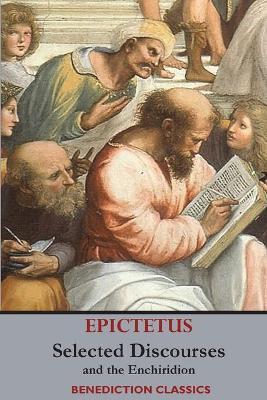"Don't explain your philosophy. Embody it." ― Epictetus "First say to yourself what you would be; and then do what you have to do." ― Epictetus "I laugh at those who think they can damage me. They do not know who I am, they do not know what I think, they cannot even touch the things which are really mine and with which I live." ― Epictetus "No man is free who is not master of himself." ― Epictetus "Everything has two handles, the one by which it may be borne, the other by which it may not. If your brother acts unjustly towards you, do not take hold of the fact that he acts unjustly; rather take hold of the fact that he is your brother who was nurtured with you." ― Epictetus Epictetus' Discourses have, since antiquity, been among the most influential Stoic texts. His ideas are surprisingly fresh: practical and speaking eloquently to the modern reader. Each idea is presented cogently in about two paragraphs of lucid text. A starting point of his philosophy is an understanding of that which is, and that which is not, under our control. However, Epictetus does not advocate a passive acceptance of fate, but advises clear-sightedness and purpose to guide us through life and its inevitable reverses. Like Socrates, Epictetus wrote nothing. The Discourses were informal lectures delivered in about 108 AD and were transcribed by his pupil Arrian. Within fifty years they were widely read, including by the philosopher Emperor Marcus Aurelius. This edition also contains Epictetus' Enchiridion, a manual for life, and includes alternate translations to make the meaning of the original Greek clearer. The original Discourses ran to eight volumes, of which only four have survived. This selection gives a solid introduction to Epictetus. George Long has also translated The Mediations of Marcus Aurelius and Plutarch's Lives, and written Decline of the Roman Empire. Epictetus (c.a. CE 5 - CE 135) was born a slave in present day Turkey in the Roman Empire. However, his master allowed him to study Stoic Philosophy, and he became one of the most respected philosophers of his time, being widely read and quoted by subsequent Stoics. He was a powerful speaker who could induce any emotion he wanted in his listener, and many eminent figures, including the Emperor Hadrian, sought his conversation. Despite lameness and persistent ill health, but perhaps due to his simple lifestyle and philosophy, he lived to an age of about 80 which was remarkable at the time.











